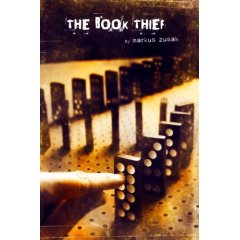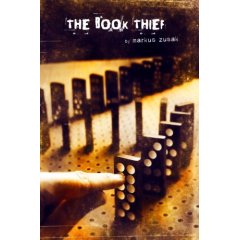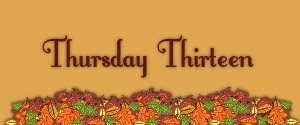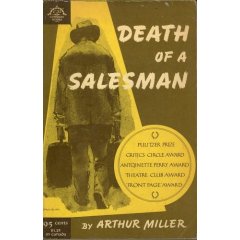
Don't Look Now by Daphne du Maurier
Short Stories
Finished on 10/20/06
Rating: A- (8/10 Very Good)
As I recently mentioned, there’s been a plethora of reading challenges within the book-blogging community. I didn’t join in on Carl’s R.I.P. Fall Reading Challenge since I was busy with my own challenge. However, after a month of classics, I decided to wrap it up and move on to something else. With Halloween coming up, I got an itch to read something creepy and gothic. While perusing my TBR shelves, I came across a copy of Daphne du Maurier’s Don’t Look Now. I have no idea where this book came from! It’s an old hardcover with a dust jacket that I can’t seem to locate anywhere online. Either my mom sent it or I picked it up at a library sale or grabbed it from a traveling book box. Who knows?!
Rod and I were on a Hitchcock kick a few years ago and among others, we rented The Birds and Rebecca, but I’ve never read any of du Maurier’s books. (Maybe that’s when I got the book! After our Hitchcock marathon.)
Anyhow, I wasn’t sure what to expect, especially once it dawned on me that I was about to read a collection of short stories and not a novel. I am not a big fan of short stories. I’m always disappointed in them. Just as I’m settling into the narrative and feeling a sense of familiarity with the characters, boom, it’s all over!
Looking through my reading journals, I only come up with a few short story titles that I’ve read: Hateship, Friendship, Courtship, Loveship, Marriage: Stories by Alice Munro; The Love of a Good Woman: Stories by Alice Munro; Ordinary Life: Stories by Elizabeth Berg; and a few collections of shorts by Rosamunde Pilcher. As I recall, I loved the Berg collections, but she’s one of my favorite authors and I’d probably be quite content reading her grocery list. The others were disappointing and I’d pretty much resigned myself to not reading shorts ever again. Part of my displeasure is that none of the stories are memorable, even after just a few days, let alone years.
That said, I was absolutely spellbound and pleasantly surprised when I finished du Maurier’s Don’t Look Now. All but one of the five stories were fantastic, each dripping with sinister suspense and mystery. These psychological thrillers are not chock full of intense action. Instead, internal drama and foreboding tension overshadow the actual plot. The conclusion of “A Border-Line Case” had me shaking my head in disbelief, wondering how in the world I hadn't seen such an obvious finale looming. (I don’t feel too ignorant. Rod didn’t see it coming, either!) Then again, perhaps that's what makes for a satisfying resolution to a mystery: You're amazed that you hadn't seen it coming, but looking back, you see that it was inevitable--it had to end the way it did.
I can picture each and every one of these stories on the big screen and was pleased to hear that Donald Sutherland and Julie Christie starred in one of my favorites, “Don’t Look Now,” which we’ve just received from Netflix. I can’t wait to curl up with a bowl of popcorn and a brownie (or two!) and see if the film is as good as the story.
It occurred to me that I may have misjudged the genre of short stories. Perhaps it’s as simple as just not caring for Alice Munro. And that Rosamunde Pilcher’s sagas are better suited than short stories to her style of descriptive writing. I don’t think I’ll be quite so quick to dismiss short stories in the future. These were great fun and I have a feeling I’ll be ready to read them again next year. du Maurier was quite a prolific author, writing numerous novels, short stories, plays and biographies, and I plan to peruse her bibliography for future ideas, perhaps in time for next year’s R.I.P. challenge. Until then, I have The Collected Stories of Eudora Welty, The Complete Short Stories of Mark Twain and Tales of O. Henry (sixty-two stories!) to keep me occupied. Those should last me a while, don’t you think?


















